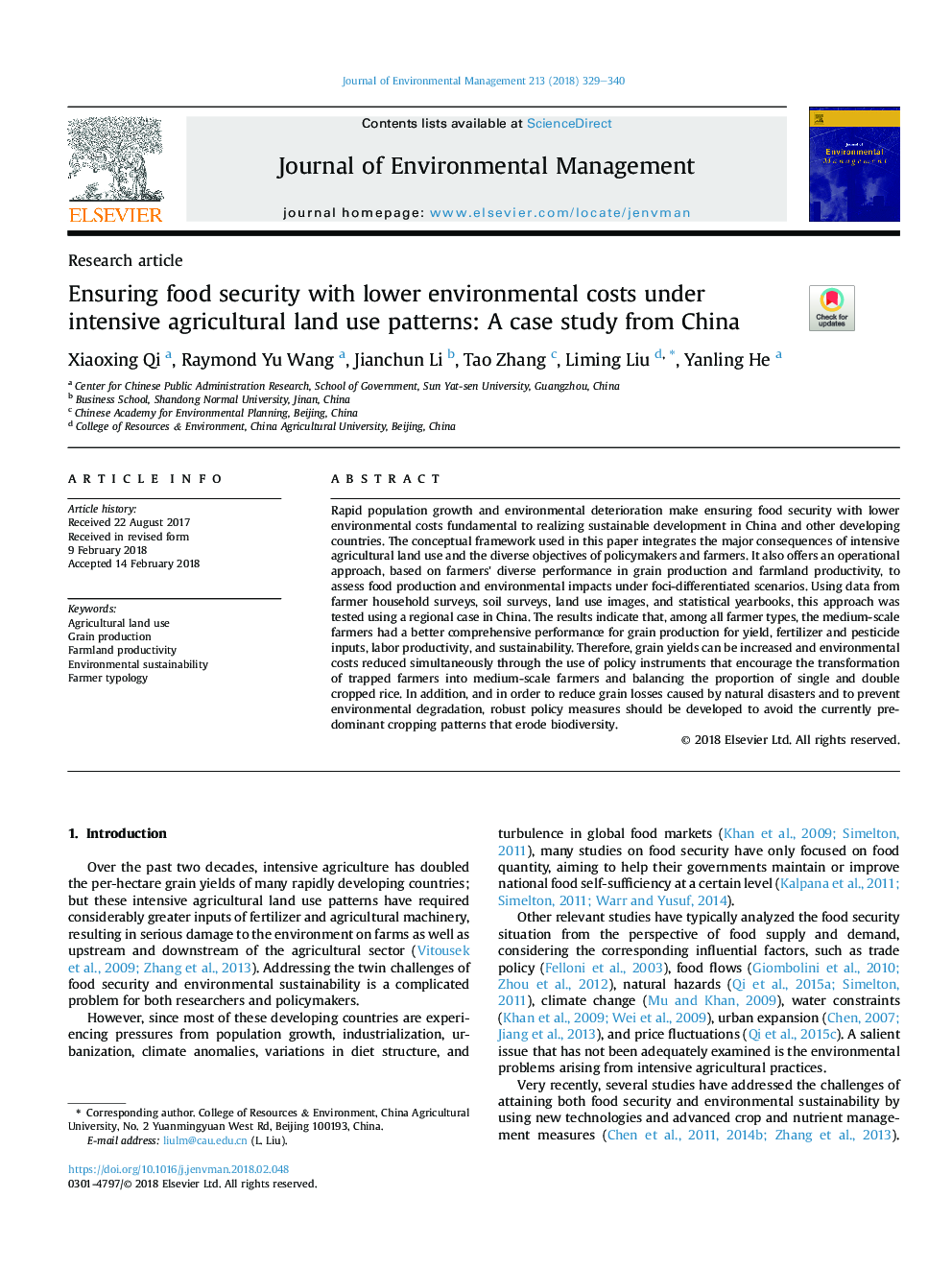| Article ID | Journal | Published Year | Pages | File Type |
|---|---|---|---|---|
| 7477874 | Journal of Environmental Management | 2018 | 12 Pages |
Abstract
Rapid population growth and environmental deterioration make ensuring food security with lower environmental costs fundamental to realizing sustainable development in China and other developing countries. The conceptual framework used in this paper integrates the major consequences of intensive agricultural land use and the diverse objectives of policymakers and farmers. It also offers an operational approach, based on farmers' diverse performance in grain production and farmland productivity, to assess food production and environmental impacts under foci-differentiated scenarios. Using data from farmer household surveys, soil surveys, land use images, and statistical yearbooks, this approach was tested using a regional case in China. The results indicate that, among all farmer types, the medium-scale farmers had a better comprehensive performance for grain production for yield, fertilizer and pesticide inputs, labor productivity, and sustainability. Therefore, grain yields can be increased and environmental costs reduced simultaneously through the use of policy instruments that encourage the transformation of trapped farmers into medium-scale farmers and balancing the proportion of single and double cropped rice. In addition, and in order to reduce grain losses caused by natural disasters and to prevent environmental degradation, robust policy measures should be developed to avoid the currently predominant cropping patterns that erode biodiversity.
Related Topics
Physical Sciences and Engineering
Energy
Renewable Energy, Sustainability and the Environment
Authors
Xiaoxing Qi, Raymond Yu Wang, Jianchun Li, Tao Zhang, Liming Liu, Yanling He,
